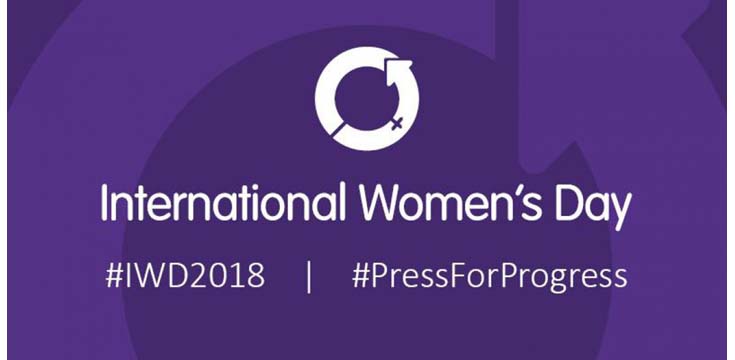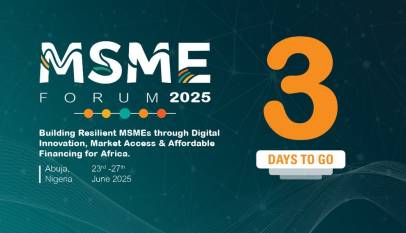OP-ED: Building a Just Future: Leadership for Gender Parity, By Lina Srivastava
Women’s economic empowerment is experiencing a resurgence of attention. This is inspired by Sustainable Development Goal 5 (SDG5), which lays out goals for gender equality and women’s empowerment, and is mirrored by the International Women’s Day 2018 campaign theme #PressforProgress, dedicated to the achievement of gender parity around the world. Most of the rich discourse relating to solutions aimed at women’s autonomy is related to access to markets and paid work, with some focus on voice and participation.

More is needed, however. The Institute of Development Studies (IDS) recently published a reportproviding research on the lived experience of women from low-income families in India, Nepal, Rwanda, and Tanzania, who are striving to balance paid work with unpaid care responsibilities. Its findings reflect a sobering reality: While the women interviewed stated they needed and therefore welcomed paid income of any kind, their days were not structured to allow them to rest, and neither their community networks nor their income allowed them to find outside support. The development efforts studied by the authors were not resulting in true economic autonomy or empowerment.
In a similar vein, Nobel Peace Prize Winner Leymah Gbowee recently detailed a new tool to calculate African women’s invisible and unpaid labor, which often amounted to more than four hours more work per day compared to men, but which is rarely accounted for or addressed by their communities or indeed by development programs. The Director of Programs for the African Women’s Development Fund has noted that in order for women to become self-empowered and economic players at the same level of men, programs must begin to address both increased income generation and political participation. And the Director-General of the Food and Agricultural Organization recently made an argument that indigenous women facing the triple threat of poverty, ethnicity, and gender are most at risk for food insecurity and extreme poverty, while yet being on the frontlines of protecting the earth’s biodiversity — but that most development programs had failed to incorporate their social and economic needs.
Observations and findings such as these demonstrate that economic empowerment programs are currently constructed to be neither holistic nor systemic. We are only tweaking at the edges and reforming one factor instead of working toward the transformation of the lives of women and their families and communities. With the primary focus on income and employment, these programs too often fail to address women’s lives as whole beings and full participants in society, culture, the market, or the political sphere.
It is in our interest to foster and cultivate women’s leadership that centers the independence and whole lives of the most vulnerable.
We need new frames and tools that help us retrain our focus more broadly. Through a grant from The Rockefeller Foundation, which supported my project to capture and communicate the insights and lessons of change leaders in development and market-based solutions, in order to inspire, educate and motivate other leaders, I developed a leadership framework called Transformational Change Leadership | Stories of Building a Just Future (“TCL”). I explored the processes of leadership that inspire optimism, enterprise, and action in the efforts to transform societies to achieve a better future for communities. That inquiry revealed an approach to change that is systemic, holistic, collective, community-directed, and transformative.
The framework isn’t only about women or those who identify as female. It is not dedicated solely to women’s leadership, which is often assessed in terms of identity (“women are inherently different and bring something new to the table”) or representation (“women should be present because it’s inherently right”). It is a broader framework, and it is notable that my team had little trouble finding examples of women all around the world who are effective leaders not simply because of identity or representation, but because they carry all the characteristics necessary to engage in effective collective action and innovation to catalyze transformational change across issues and movements – from income inequality to climate change to forced displacement, among others — and to understand the intersectional nature of people’s lives.
For International Women’s Day, we are highlighting the work of five of these women leaders as inspiration to consider gender parity through a holistic and collective lens, to understand the role of community-led efforts for women’s empowerment, and to celebrate the practice of leading by supporting women in their search for autonomy.
The stories of these leader’s efforts demonstrate that while ensuring gender parity through economic independence is crucial to women and our progress, and to the progress of our society as a whole, we need to address opportunity and progress through an integrated, transformational change approach.
In the face of our current critical obstacles (as I’ve noted in another “Building a Just Future” post), it is in our best interests to invest in interdependence, building community, and collective action – and to do so, it’s in our interest to foster and cultivate women’s leadership that centers the independence and whole lives of the most vulnerable. To truly achieve progress, this is how our future will have to look.
Lina Srivastava is the Founder of Creative Impact & Experience Lab. This article first appeared on Rockefeller Foundation’s website and the views expressed in it are the author’s own and do not necessarily reflect African Newspage’s editorial policy.










